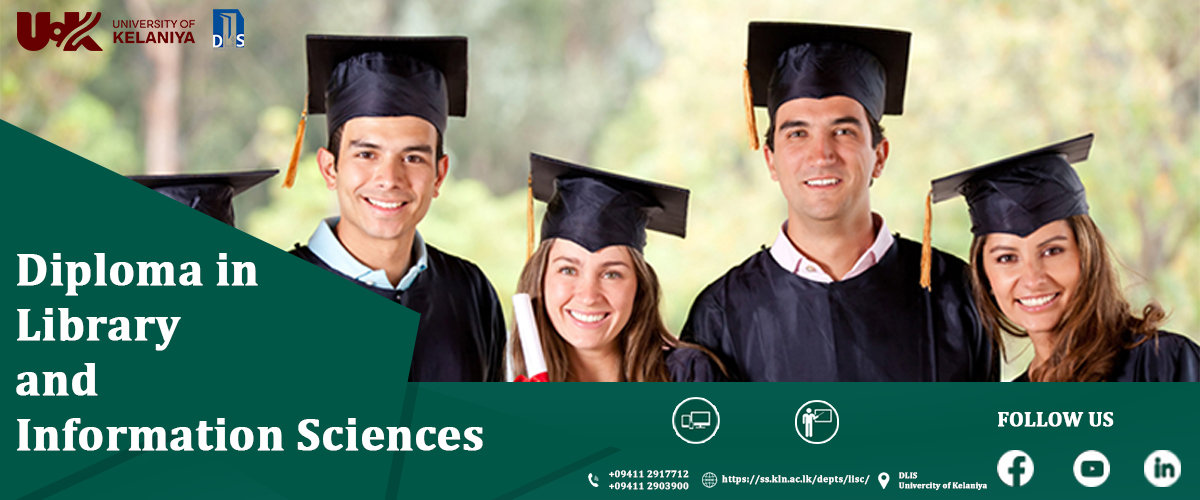You Can Apply Now for Diploma in Library and Information Science 2024
Diploma in Library and Information Science
Objectives of the program
The broad objective of this programme is to equip the students competent with basic technical training both academic and professional knowledge, competencies in Library and Information Science.
The specific intended learning objectives are:
- To enable the student to apprehend the functions and purpose of library in changing socio, economic, political, academic and modern ICT environments;
- To equip them with knowledge, skills and attitudes for the collection, organization, arrangement and the dissemination of information in different types of libraries and information centres;
- To provide basic knowledge and aptitude of computing in order to serve in any LIS setting and to apply them for different types of LIS services;
- To produce basic and mid-level professionals who can work in various types of libraries including information centres and digital libraries;
- To prepare them for further studies and research in areas of library, ICT and other related fields;
Admission Criteria
In order to eligible for the entry to this study program, the applicant should fulfil one of the following requirements:
- Possess at least three passes at G.C.E. (Advanced Level Examination) and ordinary pass for English language at Ordinary Level Examination
- Successful completion of G.C.E.(O.L.) examination and 0ne year experience in recognized library or equivalent qualification accepted by the Department
Target Group
- Officials of Statutory bodies
- Educators
- Librarians / Assistant Librarians / Library Assistants
- Staff of village knowledge centers
Course Fee
Diploma Part II- Rs. 32,000.00
Duration / Course Fee
The duration of the diploma program is two year. The Bridging course in Library and Information Science is one year. After successful completion of the Bridging course a certificate is awarded for candidate.
Contacts
Diploma in Library and Information Science - Part One - Syllabus
13013.3 Social functions of libraries
13013.4 History of Libraries and historical bibliography, Laws of Library Science and their application
13013.5 Different types libraries and their functions
13013.6 User education and communication in libraries
Diploma in Library and Information Science - Part Two - Syllabus
13073.1 Definition of Information, Information Age
13073.2 The Value of Information, Characteristics of Information, Finding and using Information 13073.3 Information Needs, Defining Information Need
13073.4 Selecting Information Sources, Information Overload, Information Sources and Information Resources, Characteristics of Information Sources
13073.5 Types of Information Sources, Documentary Sources, Non-Documentary Sources
13073.6 Electronic Sources, Information Services

